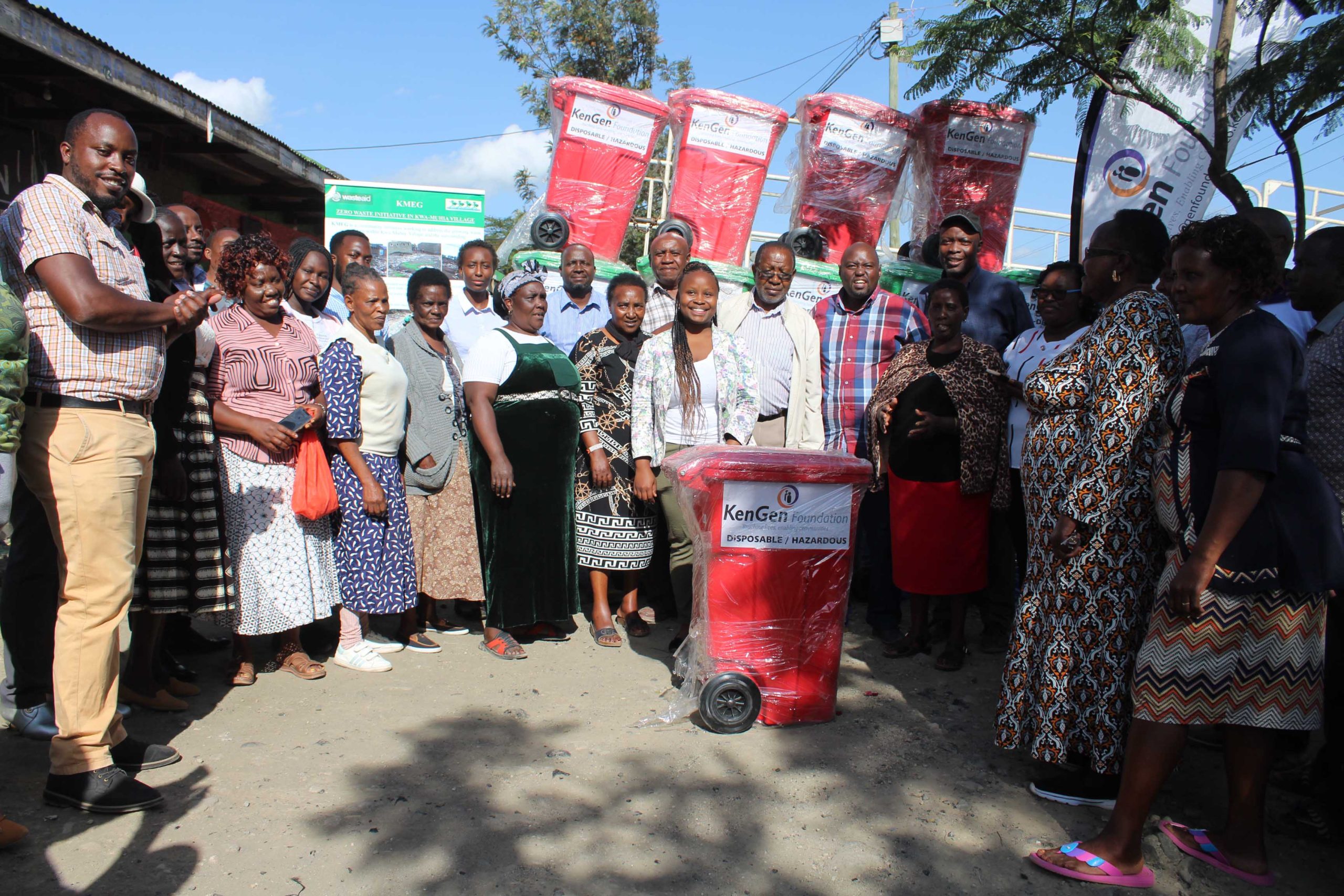KenGen Foundation and KenGen PLC on 16 May distributed 90 waste bins to the Kwa Muhia community, Naivasha, through the Kwa Muhia Environmental Group (KMEG), a local Community Based Organization involved in waste management.
The waste bins were donated under KenGen PLC’s Employee Giver Initiative as a pilot Sustainable Solid Waste Management (SSWM) project to encourage proper waste disposal at the community level through waste segregation and recycling.
KenGen Foundation’s Managing Trustee, Anthony Igecha, handed over the bins to the residents.
For the purpose of source separation of waste, three types of colour coded waste bins (Green, Yellow and Red) were donated with the red for hazardous waste, the blue for recyclables, and the green one for food waste.

KenGen Foundation and KenGen PLC on 16 May distributed 90 waste bins to the Kwa Muhia community, Naivasha, through the Kwa Muhia Environmental Group (KMEG), a local Community Based Organization involved in waste management.
The waste bins were donated under KenGen PLC’s Employee Giver Initiative as a pilot Sustainable Solid Waste Management (SSWM) project to encourage proper waste disposal at the community level through waste segregation and recycling.
KenGen Foundation’s Managing Trustee, Anthony Igecha, handed over the bins to the residents.
For the purpose of source separation of waste, three types of colour coded waste bins (Green, Yellow and Red) were donated with the red for hazardous waste, the blue for recyclables, and the green one for food waste.

KMEG have been working with various stakeholders including KenGen PLC to address the waste menace within Kwa-Muhia settlement. The ever-increasing household waste generated within Olkaria region mostly from Kwa-Muhia and Kamere settlements lack sustainable management structure despite interventions by community groups with occasional supports from nearby companies through CSR programs.
The adverse effects of poor solid waste management ranges from landfill pollution, poor public health and animals ingesting plastics. Close to 70% of the unattended waste ends up in the lake during run offs. This does not only pollute the fresh water in the lake but also endangers the riparian vegetation and the aquatic life.
Kwa-Muhia is one of the 7 informal settlements around Lake Naivasha with a raising population of 7000 people living in 2,000 tightly constructed single roomed households with limited sanitation services. This population generates an average of 90 tons of households’ waste monthly, which KMEG is struggling to address.
Follow us on Twitter through @KenGen_Foundatn and like our Facebook page for more updates.
–Ernest Nyamasyo, Communication Officer
@tweets
KenGen Foundation
16 mins ago
Lake Naivasha with a raising population of 7000 people living in 2,000 tightly constructed single roomed households with limited sanitation services. This population generates an average of 90 tons of…
Read More
KenGen Foundation
16 mins ago
ingesting plastics. Close to 70% of the unattended waste ends up in the lake during run offs. This does not only pollute the fresh water in the lake but also endangers the riparian vegetation and the …
Read More
KenGen Foundation
16 mins ago
settlements lack sustainable management structure despite interventions by community groups with occasional supports from nearby companies through CSR programs.
The adverse effects of poor solid was…


